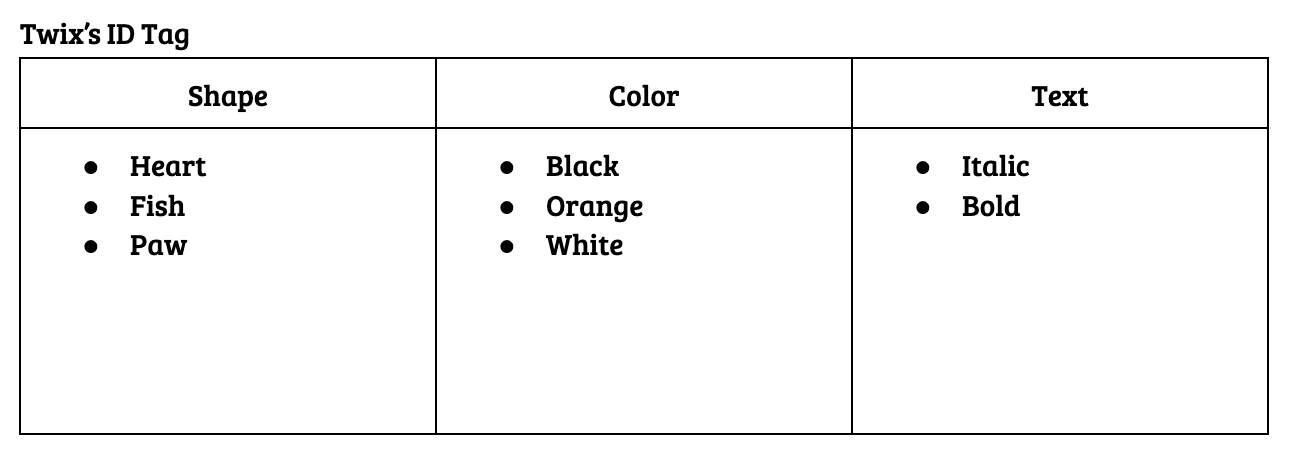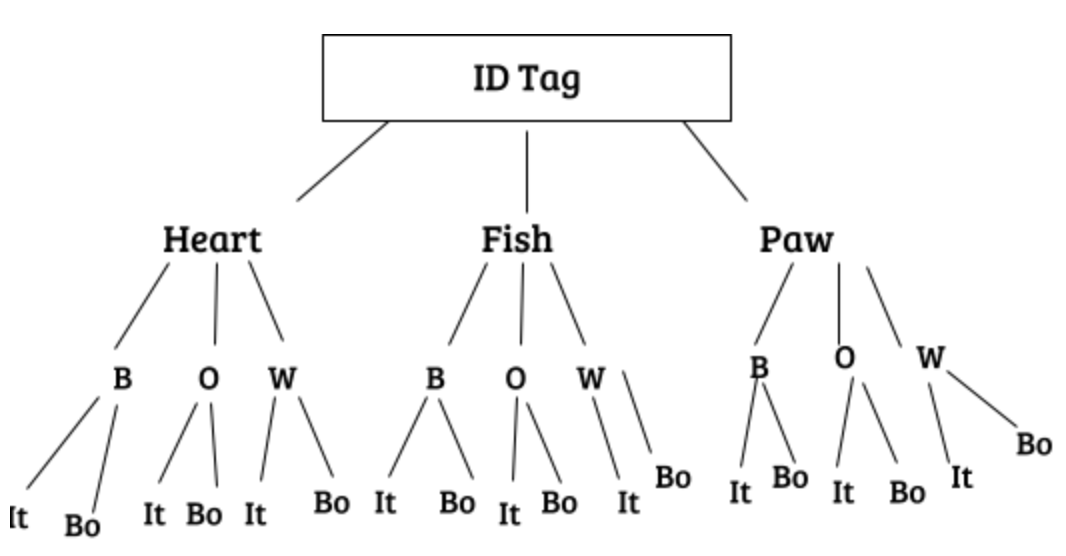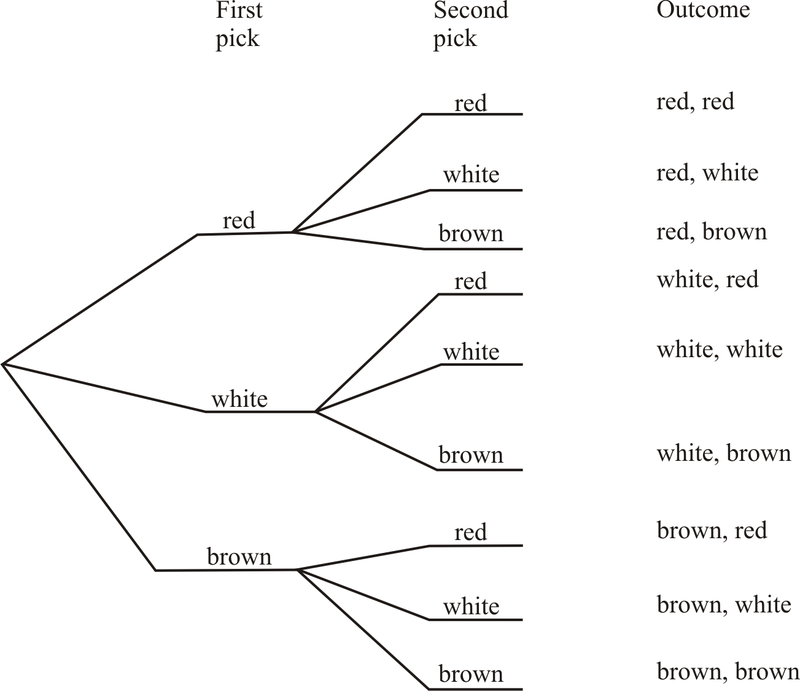You flip heads on one coin and tails on another coin.
Independent or dependent? Why?
Independent; the result of the first toss has nothing to do with the second.
A coin is tossed 1000 times resulting in 700 heads and 300 tails. What is the probability of not getting heads? Is this experimental or theoretical probability? Calculate.
Experimental; the coin was tossed and results were calculated.
300/1000=3/10=30%
You roll a die twice. How many possible outcomes are there?
36
What is the probability (simplified fraction) of drawing a 2 from a deck of cards?
4/52=1/13=8%
The probability of choosing a sandwich with swiss cheese.
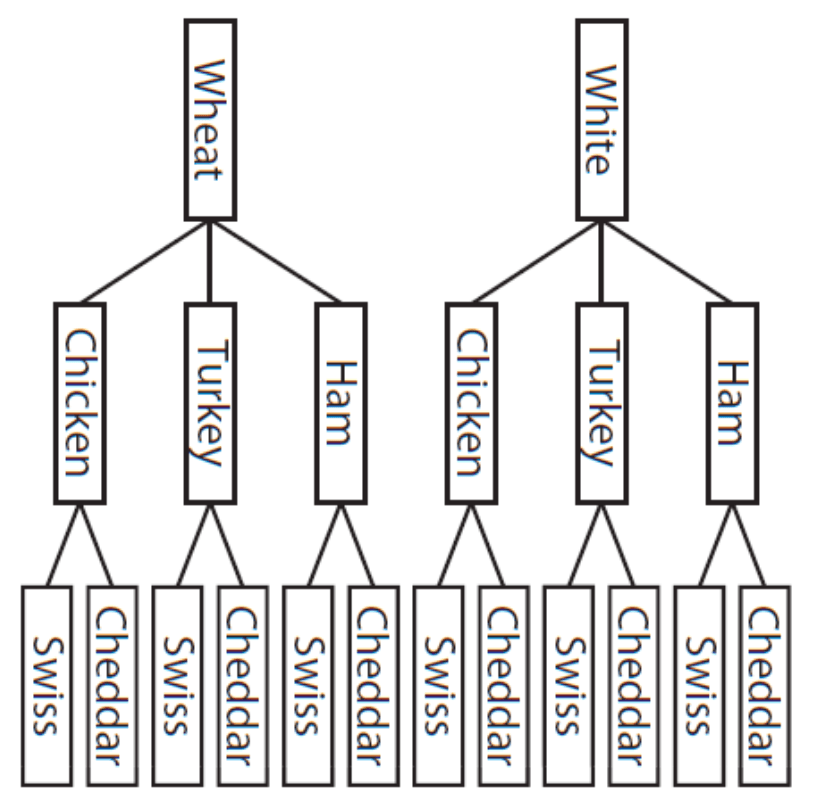
1/2
A letter tile is randomly selected from a bag, recorded, and replaced 16 times. The results are listed below. What is the probability of selecting the letter "E"? Independent or dependent event? Why?
Independent; the letters are put back into the bag and the probability of getting the letter each time is the same
One dice is thrown. What is the probability of rolling a 3? Is this a theoretical or experimental probability?Calculate.
Theoretical; the dice hasn't been thrown yet, no results.
1/6 = 33.3%
What are the possible outcomes if you choose a slice of pie and a beverage from these options: Pie: apple, peach or cherry Beverage: milk, juice or tea
9
What is the probability of drawing a 4 or 7 from a deck of cards?
8/52=2/13=15%
The probability of choosing a sandwich with chicken or ham. 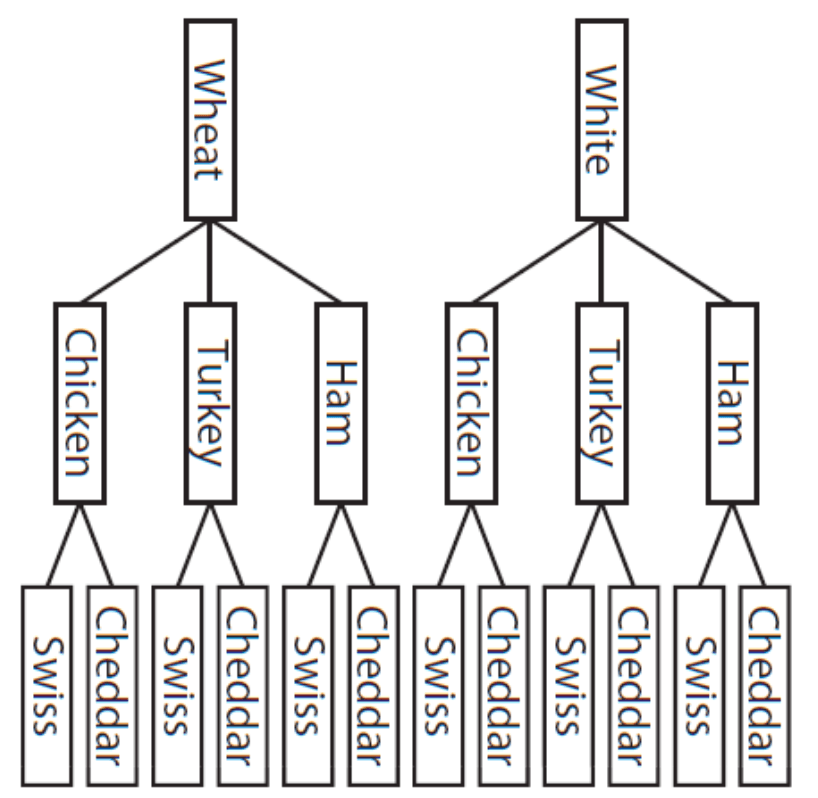
2/3
Look at the tree diagram below. Are the choices independent or dependent? Why?
Independent; the first choice can be chosen as the second choice.
Pedro recorded the types of birds that visit his bird feeder. Based on the results below, what is the probability that a chickadee came to the bird feeder? Woodpecker = 3, Chickadee = 5, Cardinal = 1, Sparrow = 13, Blue Jay = 3; 25 total birds.
Experimental or theoretical probability? Calculate.
Experimental; He recorded the birds coming to the feeder over a period of time.
5/25=1/5=20%
How many outfits are possible from a choice of jeans or khaki shorts and a choice of a yellow, white, or blue shirt?
6
What is the probability of rolling two dice with a sum of 8?
5/36=14%
The probability of wearing an outfit with jeans and sneakers.
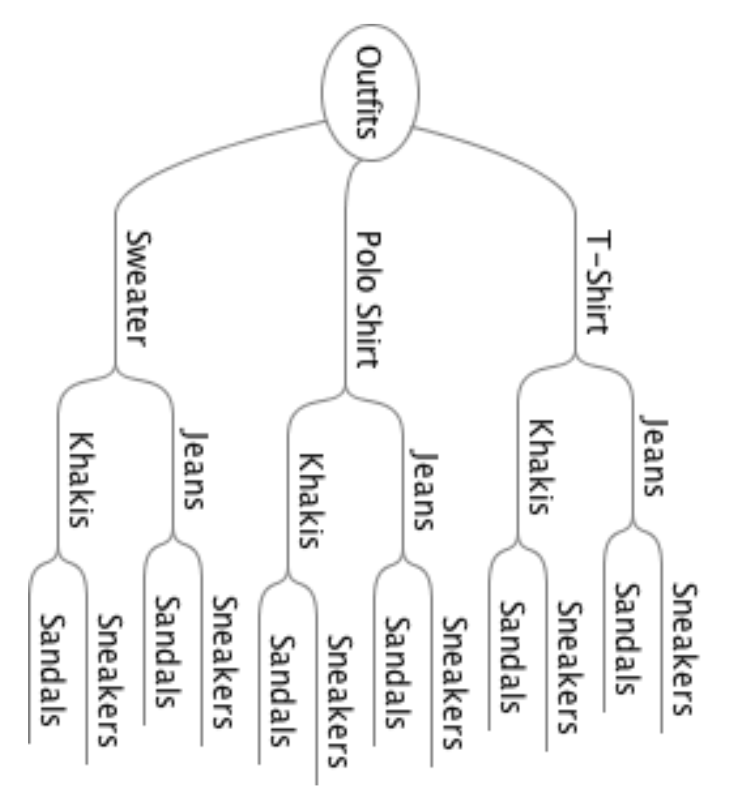
1/4
To get to the last level in a board game, you need to roll three 4's in a row. What is the probability of rolling three 4's in a row on a number cube? Independent or dependent? Why?
Dependent; you need to roll the same number three times.
Mr. G found the probability of drawing a spade to be 1/5. Did he find the theoretical or experimental probability?
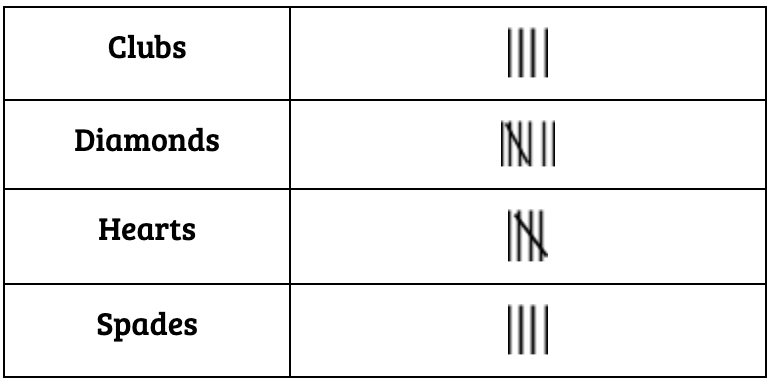
Experimental; experiment was conducted.
A burrito restaurant has 3 sizes of burritos, 4 possible meat toppings, and 6 possible veggie choices. How many possible burrito options are there?
72
You roll two dice. What is the probability that you do not roll a sum of 12?
35/36
Create a tree diagram. Then find the probability of having green and short hair.
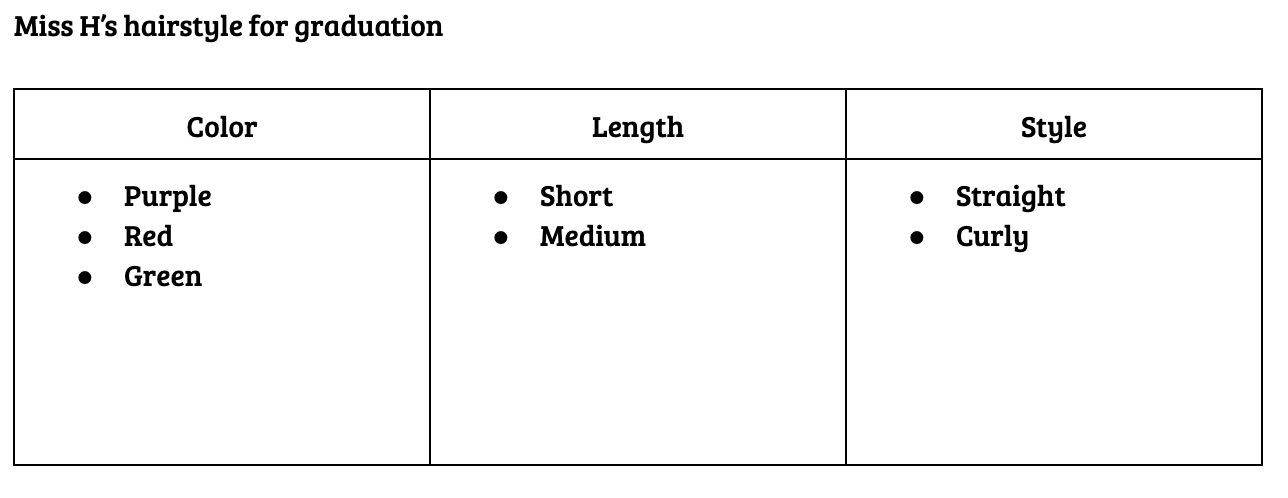
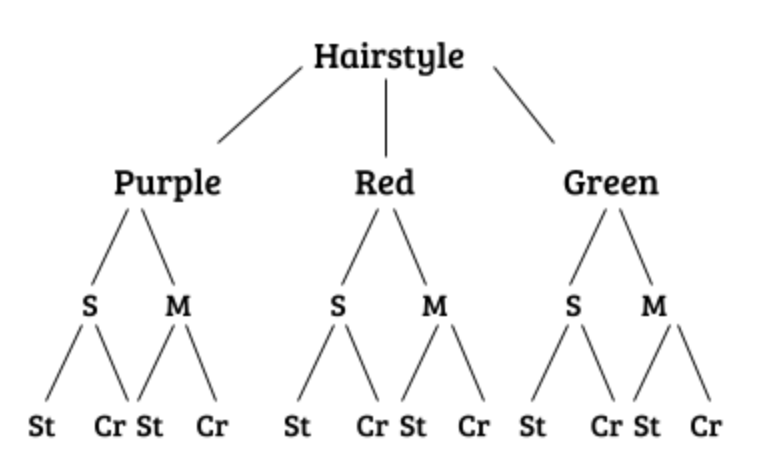
The teacher chooses one student to lead a group, then another student to lead another group. Independent or dependent? Why?
Dependent; the first student cannot be chosen againt to lead another group.
What is the probability of choosing a red king from a deck of cards? Experimental or theoretical? Calculate.
Theoretical; no experiment has been done - calculating the potential probability of an experiment
2/52=1/26=4%
Rinko works at a clothing store. The store just got a new shipment of jeans. The jeans comes in 3 colours: blue, black, and grey. There are 5 sizes available: xs, s, m, l, xl. She needs to bring out one of each pair of jeans onto the sales floor. How many pairs of jeans does she have to bring out?
15
Mr. Gilad had a bag of beads. He told students to pick 1 at random, and if they get a golden one they get recess for the whole day, but if they get a black bead they don't go for the rest of the week.
There were 3 red, 10 blue, 12 black, 5 yellow, and 8 golden.
What is the probability that students get a golden bead on the first try?
Provide an answer as a fraction, decimal, and percentage.
8/38 simplified is 4/19.
4/19 = 0.21 = 21%
Create a tree diagram. Then find the probability of choosing a fish tag or orange tag.
